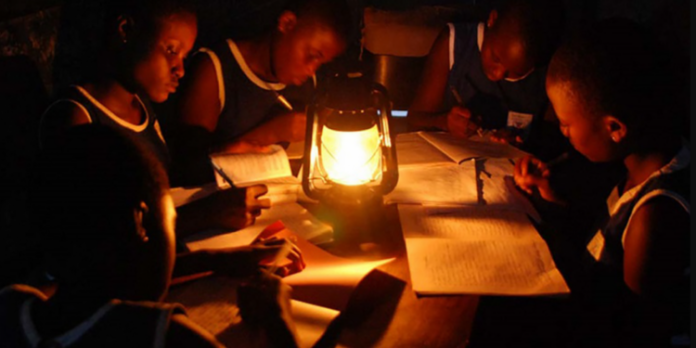Nigerian households experience an average of 6.7 electricity blackouts each week, with each outage lasting around 12 hours, according to the latest General Household Survey Panel (Wave 5) report by the National Bureau of Statistics (NBS) in collaboration with the World Bank.
The survey, which covers 4,715 households nationwide, highlights significant challenges in electricity access, particularly in rural areas where infrastructure remains limited.
Key Findings
The report reveals that power outages affect both urban and rural households similarly. Urban households face an average of 6.4 blackouts per week, each lasting 12 hours, while rural households endure 6.9 blackouts per week, with each lasting approximately 12.1 hours. Regional differences show that the southern regions experience longer blackouts, often exceeding 12 hours, while the northern regions have shorter outages, usually under 11 hours.
The report states: “On average, a Nigerian household experiences electricity blackouts 6.7 times per week, with each lasting 12.0 hours, leading to a total of 67.2 hours of blackouts over seven days. There is no significant difference between urban and rural areas.”
Disparities in Electricity Access and Supply
Around 53.6% of Nigerian households report having access to electricity. However, there is a stark contrast between urban and rural access: 82.2% of urban households have electricity, compared to just 40.4% in rural areas. The South East region has the highest electrification rate at 74.6%, while the North East region lags behind at 29.5%.
Although urban areas have higher electricity access, the quality of supply remains a challenge across the country. The Power Holding Company of Nigeria (PHCN) is the dominant electricity provider, serving 88.2% of households with access to power. However, other sources such as generators, solar home systems, and mini-grids contribute only marginally to the overall energy supply.
The report adds: “The national average for electricity access stands at 53.6%, with urban areas at 82.2% and rural areas at 40.4%. PHCN continues to serve 88.2% of households with access to electricity, while alternative sources, such as generators, solar systems, and mini-grids, account for a small portion of the energy supply.”
Additional Insights
- The national power grid collapsed earlier this month, plunging the country into widespread darkness. This marks the tenth grid collapse in 2024.
- The Transmission Company of Nigeria (TCN) attributes the latest grid failure to a spike in frequency at a substation.
- The National Orientation Agency (NOA) explains that frequent grid collapses are due to electricity distribution companies (DisCos) being unable to effectively manage the generated power. Despite the country’s ability to generate about 13,000 MW and transmit up to 8,000 MW, limited infrastructure in the distribution network causes frequent disruptions.













